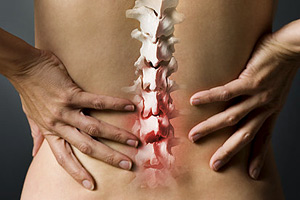In a survey done on women’s attitude towards heart disease, only a small percentage were found to be aware that heart attack is one of the leading causes of death in the world today. The survey also says that almost 300,000 women die of heart attack each year, all because they tend to ignore the signs and symptoms. Women are less likely to go and visit a doctor and have a checkup because they believe that their family is more important and should be given more priority. In fact, most women who die of a heart attack do not call 911 until it’s already too late.
The early signs of a heart attack are not that difficult to distinguish. However, you have to understand that the symptoms in women are not always the same as those in men. Here are the signs and symptoms you have to look out for that will save you from a possible deadly heart attack.
1. Upper-body discomfort - It’s logical to think that heart attack would strike and affect the left side of the body, particularly the left arm. However, one of the sure signs of a heart attack is the feeling of pain and discomfort either on the left arm or both arms. The discomfort can also be felt in the jaw, the back, the neck, or even the stomach.
2. Difficulty in breathing - If you are the athletic type but you find it hard to catch your breath even when you’re just sitting down or lying in bed, something is probably wrong. Shortness of breath that comes with profuse sweating and feelings of dizziness is usually a sign of heart attack. Be careful because such symptom can also lead to fainting.
3. Unexplainable weakness - It’s normal to feel tired especially if you had a stressful day at work, but if you’re feeling fatigued and weak than usual, it could be a sign that you’re having a heart attack. Before or during a heart attack, your heart will stop pumping properly. Because of this, oxygen and glucose will not spread throughout your body, which results to you feeling very weak as if all your energy has been sapped.
4. Nausea and vomiting - Because your body is in an emergency state during a heart attack, the nerves that control your bodily function may overwork. This will make you sweat profusely and look very pale. It will also make you feel very dizzy to a point that you keep on vomiting. Experts do not know exactly the reason behind this but if you’ve been experiencing this for a while, seek medical attention immediately.
5. Anxiety - Anxiety is a normal part of life, but you have to take note that it can be a risk factor and a sign of a heart attack at the same time. There is a link between panic attack and heart attacks so you have to be very careful when diagnosing both. When you’re having panic attacks, you can experience difficulty of breathing and feel some pain and discomfort as well. But if you’re getting tense without any reason at all, it can mean that your nerves are reacting to the overexertion of your heart.
6. Inability to sleep - Experts suggest that sleep disturbances are a symptom of an approaching heart attack among women. In obstructive sleep apnea, wherein the upper airway is partially or totally blocked, breathing is interrupted so that a heart attack is more likely happen. This is accompanied by tossing and turning during the night and total inability to sleep at times. According to surveys, women who suffer from heart attack experience this kind of symptom a month before the attack happens. So when you often wake up in the middle of the night having cold sweats and unable to catch your breath, it’s time to visit the doctor for a checkup.
7. Indigestion - Heartburn is sometimes difficult to distinguish from a heart attack simply because acid reflux can fester just right behind your heart. However, you will easily know that you’re having a heart attack if you get heartburn not during a meal but during a physical activity. When this happens, see your specialist right away.
Your heart is a muscle, so what makes your biceps and triceps strong will also strengthen your heart. If you can combine a heart-healthy diet with regular exercise, you will have a larger chance of not experiencing a heart attack altogether.
The article taken from Medsavailable



